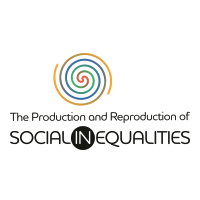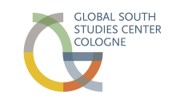Special Project: Communication during and after Covid-19
Communication during and after COVID-19: (re)producing social inequalities and/or opportunities among African migrants in the United Arab Emirates and China
Members of the Project
- Tu Huynh, Global South Studies Center, University of Cologne (Principal Investigator)
- Jonathan Ngeh, Global South Studies Center, University of Cologne (Principal Investigator)
- Michaela Pelican, University of Cologne (Principal Investigator)
Project Description
This project relates closely to our research unit studying the production and reproduction of social inequalities, but approaches the subject from the angle of communication during and after COVID-19. It involves three members of the research unit, who share an interest in African migrants and their exposure to the social, political, and economic ramifications of the pandemic. The project strengthens our discussions on both the production and reproduction of social inequalities and the emergence of new opportunities by considering the vital role of communication in times of crisis and transition.
Research objectives
Taking an innovative approach, we tackle the Corona crisis and its effects from the standpoint of communication. While COVID-19 is unequivocally a health pandemic, our study also views it as producing a crisis of communication. We see communication as an act of transmitting or exchanging information in all its forms. Our analysis examines three parallel networks of communication relating to: a) the host governments, b) the governments of the migrants’ home countries and c) the migrant groups in focus. These represent the different circles of communication where relevant information, affecting the lives of the African migrants, are circulated. As we have been observing on traditional and online social media since January 2020, communication is central to cooperation between states and diverse groups of people. Moreover, whether it is about testing, contact tracing, quarantine, income subsidies or misinformation, we regard communication as having a role in producing/reproducing social and structural inequalities. Attention to how care is communicated, including undercommunicated, miscommunicated and rumored, is as crucial as the availability of care; the reason being, that nationality, power relations or stigmas associated with race, culture, gender and class influence the ways in which communication occurs or not (Casmir 2012). We further assert that communication – fragile, at times tense and at times amicable – through multifarious online and in-person platforms can also engender unforeseen openings. Furthermore, we agree with Glick Schiller (2020) that the pandemic has the potential to create opportunities and facilitate novel social responses, such as an emerging and growing activism of diverse groups working in solidarity against structural inequalities. Being attentive to opportunities enables us to capture possibilities that are not always structurally predetermined and that may finally generate the circumstance for substantial social transformation after the Corona crisis.
Drawing on the research background of our team and the important positions of China and the UAE in South-to-South trade in the 21st century, we focus on African migrants, who are already vulnerable or marginalized due to their legal positions in these places (Haugen 2012, Ngeh and Pelican 2018). We are also aware of the heterogeneity of African migrants and the fact that their vulnerability varies depending on their economic situation and the nature of their work. That it is not uncommon for certain groups to become stigmatized during crisis situations and for migrants to be scapegoated for endangering native populations, further justifies our attention on the African migrants. By focusing on two different countries, we are able to compare communication structures and identify the factors that account for different outcomes. Our main research questions are as follows:
- Does the Corona crisis primarily reinforce existing inequalities or does it create new inequalities by disadvantaging some vulnerable and/or marginalized groups more than others? Does it also give rise to new opportunities for vulnerable and/or marginalized groups?
- How do African migrants deal with different forms of communication, including undercommunication, miscommunication and rumors? Which networks of support have emerged and facilitate communication within and across migrant and non-migrant communities?
- What kinds of communicative interactions of governments, civil society organisations (national and international) and residents can make the process of coping with the pandemic most productive and responsive to the needs of different demographic groups?
Research methodology
We adopt the transdisciplinary methodological framework proposed by N.B. Salazar (2020). He urges researchers to go beyond disciplinary training, reach out more widely, and be more creative in efforts to generate strategies of solidarity. Taking note of this, our project not only combines anthropological and sociological knowledge, but also incorporates participatory and collaborative research methods that are more hands-off for the researchers and hands-on for the research collaborators who are mostly Africans but include some nationals or non-African migrants whose everyday sociability brings them into contact with African migrants in China and the UAE. Moreover, while relying on online tools to communicate, we set up and encourage the use of online discussion groups that allow project participants to communicate with one another without the limits of face-to-face meetings. Collaborative research is preferred for its deliberate goal to create equity in the research relationship and in view of limitations on travel to contain the spread of COVID-19.
Collaborative approach
Our research is guided by the notion that knowledge production, especially in the humanities and social sciences, is a collaborative process involving different actors who are positioned differently. Accordingly, and in order to minimize asymmetrical power relations between, for example, researchers and research participants in the research process, we adopt a collaborative approach, researching with and for people rather than on people. This approach, known as participatory methodological approach, calls for collaboration, recognition and inclusion in the entire research process. Working with individuals from the target study population as research collaborators on eye-level, integrating their own ideas, and working together on the research questions, data collection, and analysis is central to our participatory methodological approach. The importance of the participatory methodological approach becomes even more relevant in the current situation of COVID-19 that does not allow us to do fieldwork ourselves and meet face-to-face with people. Moreover, it allows access to hard-to-reach groups, such as ‘irregular’ migrants, who might not trust outsiders, even more so during a time of crisis.
References
Casmir, F.L. (ed.). 2012. Ethics in Intercultural and International Communication. New York and London: Routledge.
Glick Schiller, N. 2020. Dispossession: “A Conjunctural Analysis with Pandemic” Preface. Draft paper. Accessed at: https://www.researchgate.net/publication/340925439_Dispossession_A_Conjunctural_Analysis_with_Pandemic_Preface
Haugen, H.Ø. 2012. “Nigerians in China: A Second State of Immobility.” In: International Migration, 50(2): 65-80.
Ngeh, J. and M. Pelican. 2018. “Intersectionality and the Labour Market in the United Arab Emirates: The Experiences of African Migrants.” In: Zeitschrift für Ethnologie (ZFE) 143(2): 171-194.
Salazar, N.B. 2020. “Anthropology and Anthropologists in Times of Crisis.” In: Social Anthropology/Anthropologie Sociale, 0 (0): 1-2. I-first.
This project is funded by the Volkswagen Foundation as part of their initiative "Corona Crisis and Beyond – Perspectives for Science, Scholarship and Society".


